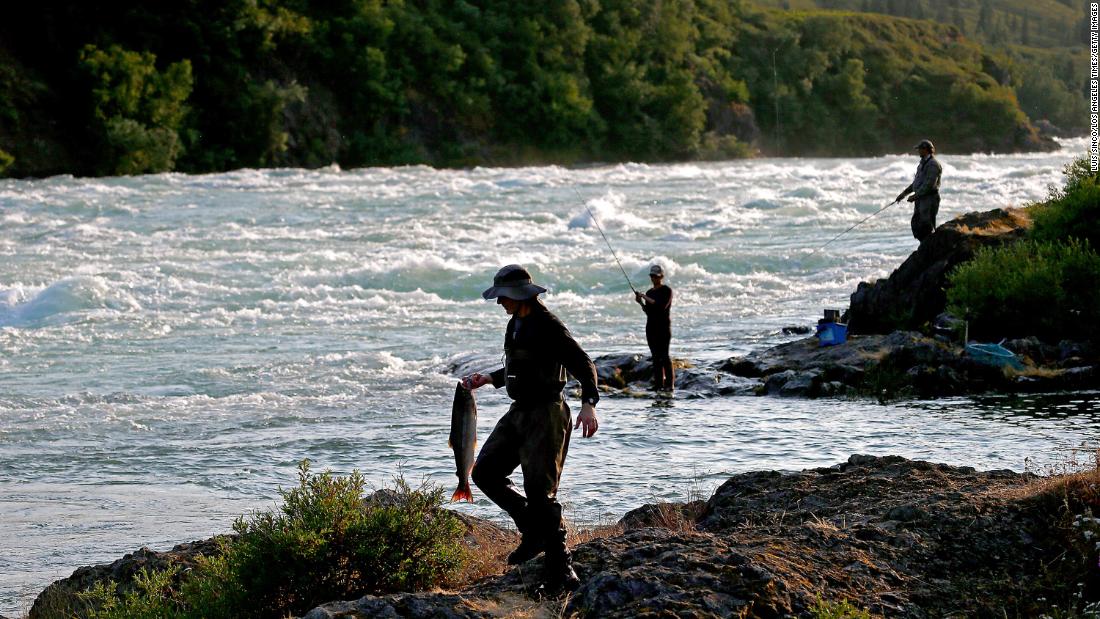
Calling the bay an “Alaskan treasure,” the Environmental Protection Agency said in a statement it has asked a federal court to allow for Clean Water Act protections for parts of the bay. If the court agrees, the agency could move forward with designing long-term protections for the bay.
“The Bristol Bay Watershed is an Alaskan treasure that underscores the critical value of clean water in America,” EPA administrator Michael Regan said in a statement.
Regan continued: “Today’s announcement reinforces once again EPA’s commitment to making science-based decisions to protect our natural environment. What’s at stake is preventing pollution that would disproportionately impact Alaska Natives, and protecting a sustainable future for the most productive salmon fishery in North America.”
The announcement brings a considerable blow to the Pebble Mine project, which would be the largest extraction site in North America. For some two decades, the proposal for the mine has been a lightning rod for controversy, and has been widely assailed by numerous interest groups in Alaska and the lower states, and also faced opposition from many Alaskans.
In 2014, after three years of peer-reviewed study, the Obama administration’s EPA invoked a rarely used provision of the Clean Water Act to try to protect Bristol Bay after finding that a mine “would result in complete loss of fish habitat due to elimination, dewatering, and fragmentation of streams, wetlands, and other aquatic resources” in some areas of the bay.
“All of these losses would be irreversible,” the agency said at the time.
But the Trump administration’s EPA told staff scientists in 2019 it was no longer opposing the mine just one day after then-President Donald Trump met with Alaska’s governor, a supporter of the project.
Top Pebble Limited Partnership mining executives were secretly recorded in 2020 describing in detail their cozy influence over US lawmakers and regulators. They also revealed their intentions to go far beyond what they were saying on applications for federal permits to work near the headwaters of Bristol Bay.
“I mean we can talk to the chief of staff of the White House any time we want, but you want to be careful with all this because it’s all recorded,” said Ron Thiessen, CEO of Northern Dynasty Minerals, of official communications to the White House, as he himself was recorded unknowingly. “You don’t want to be seen to be trying to exercise undue influence.”
The Bristol Bay watershed and area is regarded as one of the world’s most important salmon fisheries, producing nearly half of the world’s annual wild sockeye salmon catch. Its ecological resources also support 4,000-year-old indigenous cultures, as well as about 14,000 full- and part-time jobs, according to the EPA’s 2014 report.



